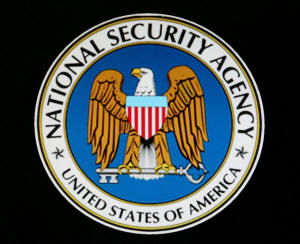|
"It's really important we encourage whistleblowers to come
forward and that they feel comfortable doing so and if there are
allegations of reprisal then we take that very seriously,"
Storch said in an interview with Reuters last week.
The spy agency has experienced a series of embarrassing leaks
over the past five years, beginning with Edward Snowden's 2013
high-profile exposure of secret NSA surveillance programs.
Getting more staff to come forward and report concerns
internally through Storch's office could reduce the number of
leaks, said intelligence community historian Steven Aftergood.
Yet some experts believe potential whistleblowers should remain
skeptical of promises they will be protected or appreciated.
"It is a military intelligence agency and by its nature it
imposes strict discipline on its employees so it's a tough place
to be a dissenter," Aftergood said.
Critics point to the government's handling of allegations that
Storch's predecessor, George Ellard, retaliated against a
whistleblower.
An external review board in 2016 recommended that Ellard be
fired from the military over those claims, according to Ellard's
attorney, Terrence O'Donnell. The Pentagon decided not to act on
that recommendation and did not fire him, according to
O'Donnell.
"The NSA and the intelligence community has a long history of
harshly retaliating against whistleblowers - not just those who
go to the press, but those who attempt to go through internal
channels," said Trevor Timm, co-founder of the Freedom of the
Press Foundation.
Storch said he has made progress by working with civil rights
and privacy groups.
That effort included a February meeting with the non-profit
Project on Government Oversight and other similar organizations.
"I felt strongly coming out of the meeting that Storch was
committed to making sure that NSA whistleblower disclosures
would be handled with the care and discretion that they
deserve," said Rebecca Jones, a policy associate with Project on
Government Oversight.
(Reporting by Christopher Bing; editing by Jim Finkle and
Rosalba O'Brien)
[© 2018 Thomson Reuters. All rights
reserved.] Copyright 2018 Reuters. All rights reserved. This material may not be published,
broadcast, rewritten or redistributed.
Thompson Reuters is solely responsible for this content.

|
|







